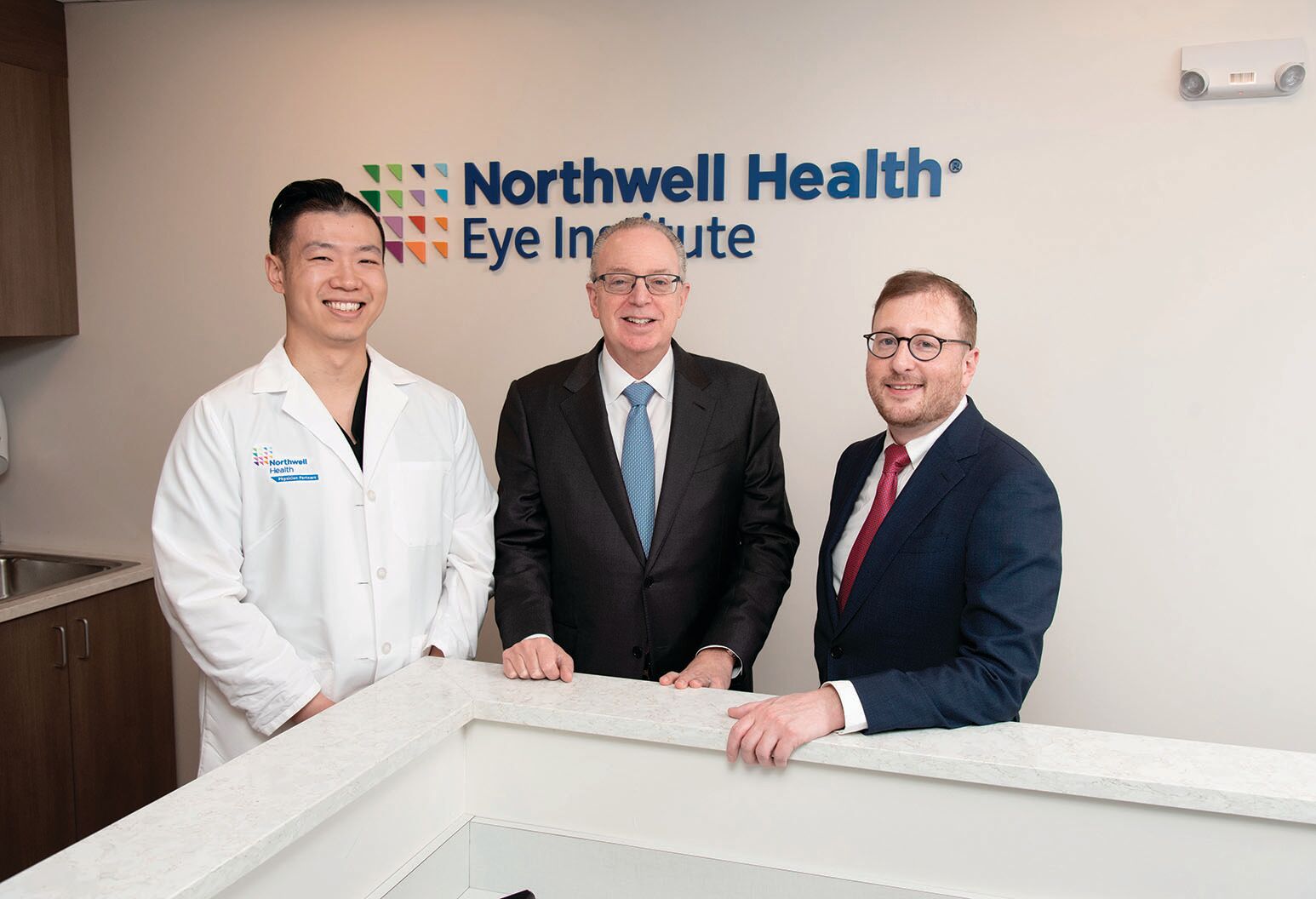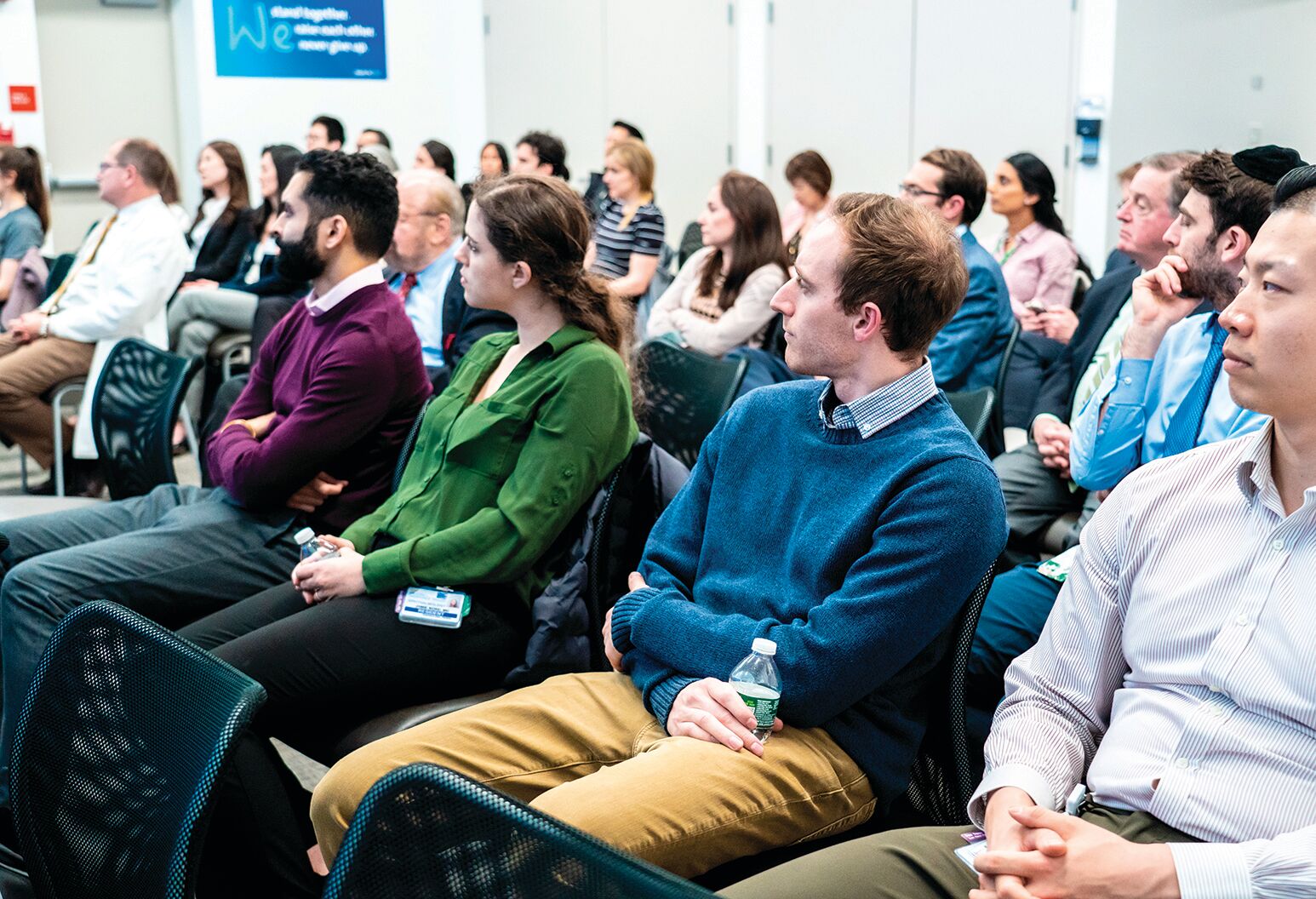Our representatives are available to schedule your appointment Monday through Friday from 9am to 5pm.
For a Northwell ambulance, call
(833) 259-2367.

Experts predict a nationwide shortage of 6,000 ophthalmologists by 2025. To help bridge this gap, ophthalmology residency programs like the one at Northwell Manhattan Eye Ear and Throat Hospital (MEETH) are rethinking when and how they offer education, increasing their number of residents and implementing alternative classroom strategies that encourage students to take control of their learning.
Jules Winokur, MD, MBA, and Isha Cheela, DO, who lead Northwell/MEETH’s program, share four ways ophthalmology residency programs can set themselves and their residents up for lasting success.
In 2021, the Northwell/MEETH ophthalmology residency partnered with Northwell Health’s Department of Internal Medicine to offer a one-year integrated internship for medical school graduates who are accepted into the ophthalmology residency program. Interns begin their clinical training by rotating continuously through general internal medicine and its subspecialties for their first nine months. In April, they begin a three-month dedicated ophthalmology training block — which allows for an earlier transition into their careers as ophthalmology residents.
“Previously interns started in July, which coincided with the senior residents graduating. This resulted in a steep learning curve for new interns joining the team, and possible gaps in patient care,” says Dr. Winokur, director of the Northwell/MEETH ophthalmology residency program. “The new integrated approach means that our department can seamlessly incorporate ophthalmology education earlier in the resident training. As a result, the entire resident body is better equipped to evaluate and treat patients on July 1 when graduating residents leave.”
In July 2023, Northwell/MEETH increased the number of ophthalmology residents in training from four residents per year to five. “The Eye Institute’s ophthalmology programs and care locations continue to grow, along with applicant interest in our residency program,” Dr. Winokur says. “By expanding the residency program, more ophthalmology residents have the opportunity to tap into the expertise of specialists at both the Northwell Health Eye Institute and the Manhattan Eye, Ear and Throat Hospital (MEETH).” With the addition of the new resident, ophthalmology trainees can spend more time engaging with faculty, subspecialists and ophthalmology fellows at MEETH, and will gain exposure to the breadth of ophthalmic pathology seen there.
A flipped classroom model can help ophthalmology residents better understand and retain information.
“In a flipped classroom model, residents first review material outside of the classroom through our pre-recorded lecture database, digital modules, reading assignments, or other modalities,” says Dr. Cheela, associate director of the ophthalmology residency program. This allows residents to have an existing foundation of knowledge when they come to the classroom.
Sessions with attending physicians then follow a problem- or case-based format that allows for open discussions, debates and problem solving. “The classroom activities help residents internalize the content in more applicable ways, so they think of medical situations in terms of patients, conditions, and scenarios,” Dr. Cheela explains.
Over the past three years, the department has adopted the flipped classroom model across all ophthalmology subspecialties. “Instead of passively listening to lectures two or three times a week, residents are now engaging in active learning and discussions,” Dr. Cheela says. Research suggests this more active approach to learning promotes a better understanding and application of scientific and medical material.

Residents at a MEETH lecture. Photo credit: Northwell Health
In addition to these innovations, the system also envisions a more collaborative learning model. To that end, Dr. Winokur founded the Manhattan Eye Review in 2016. The concept was to make learning more interactive, involve experts in different fields, and involve trainees from multiple training programs. Residents are given questions and medical scenarios that they need to respond to via an audience response system. Trainees can gauge their answers compared to their peers to assess their own knowledge base. The interactive component of learning has been shown to help them to retain material.
The first session, on January 6, 2016, hosted in the historic Corwin Hall at MEETH, drew residents from programs across the New York area, and included faculty from many different programs.
Today, the symposium is given virtually and organized by Dr. Cheela and Dr. Winokur. The move to virtual symposia gives the event nationwide access, and now attracts hundreds of residents from across the country.
In addition to a robust residency program, the Northwell Health Eye Institute offers subspecialty fellowship programs, medical student rotations, and lectures and symposia.
Our representatives are available to schedule your appointment Monday through Friday from 9am to 5pm.
For a Northwell ambulance, call
(833) 259-2367.